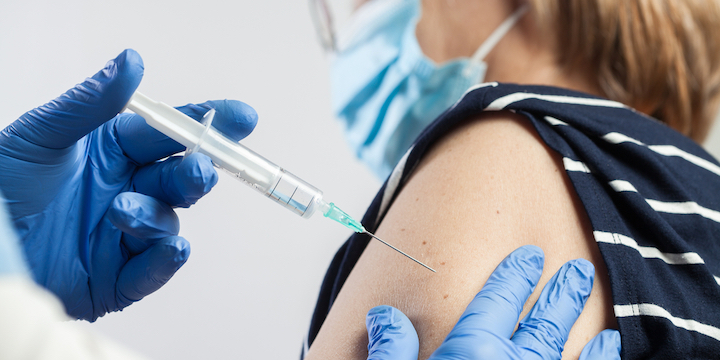Vaccination against covid began in France and throughout the European Union on December 27, 2020 with the Pfizer / BioNtech vaccine. This vaccine, which uses the technique of messenger RNA, is still the subject of fears. But it is above all the slowness with which France vaccinates compared to other countries that raises questions today. Doctor Nathan Peiffer-Smadja, infectious disease specialist at Bichat hospital in Paris, answered our questions.
Are we sure the covid vaccine is safe?
Dr Nathan Peiffer-Smadja: It can be said that the Pfizer / BioNTech vaccine, like the Moderna vaccine, is safe. They have been developed according to scientific rules and have been validated by the American, European and British drug agencies. They followed all phases of clinical studies in a very clean way, according to the usual rules, with even more participants than usual.
Today, we have several months of hindsight on this vaccine and more than ten years of hindsight on messenger RNA technology, which is already being used in oncology in particular. The safety data from phase 3 is very reassuring. We have a stronger immune reaction for the vaccinated group than for the placebo group, which corresponds to the efficacy of the vaccine itself.
For its short-term safety, several million people have received these vaccines around the world without any unexpected reaction. In the long term, it is extremely unlikely, given the data and the technology used, that there will be any effects, although of course it must be monitored. This will be done through pharmacovigilance monitoring.
In summary, the level of safety of these vaccines is extremely solid, and their benefit / risk balance especially, is very favorable. So personally, I will administer the vaccine without a shadow of a doubt.
In its vaccination protocol, France takes a lot of precautions in terms of consent, is this really necessary?
Dr Nathan Peiffer-Smadja: It is a vaccine like any other, we should ask if the patient wants to be vaccinated, answer questions, possibly discuss. There is no need to take more precaution than usual or to do a pre-vaccination consultation.
It is a licensed vaccine, like the HPV vaccine or the flu shot that is given every day. In my opinion, it is necessary to standardize its prescription.
Should France, like its European neighbors, vaccinate more people and more quickly?
Dr Nathan Peiffer-Smadja: Yes, the goal is to vaccinate much faster to protect people at risk of severe disease, so that our services are not filled with covid patients, to prevent people from going into intensive care and dying every day. It is therefore necessary to vaccinate fragile people first, but much more than 50 per day.
And to stop the epidemic, much more must be vaccinated, beyond 70% of the population. We must therefore go much faster, because at this rate, I am not sure that we will reach this percentage at the end of 2021.
But every day we vaccinate more and each person vaccinated is one more person who will probably not come to our services, given the very high effectiveness of the vaccine.
Medically and scientifically, nothing prevents us from moving up a gear. It is logistically that there may be brakes.
 Cherry tomatoes contaminated with salmonella: 92 sick and 1 dead
Cherry tomatoes contaminated with salmonella: 92 sick and 1 dead  A better coaching method can make a person grow
A better coaching method can make a person grow  What is the method to prevent diabetes in children?
What is the method to prevent diabetes in children?  What are the effective factors in causing stomach ulcers?
What are the effective factors in causing stomach ulcers?  Why do embarrassing memories seem to appear at night?
Why do embarrassing memories seem to appear at night?  The amazing link between SARS-CoV-2 infection and newly started diabetes
The amazing link between SARS-CoV-2 infection and newly started diabetes  WHO says monkey pox is not a global emergency right now
WHO says monkey pox is not a global emergency right now  Single cell RNA sequencing uncovers new mechanisms of heart disease
Single cell RNA sequencing uncovers new mechanisms of heart disease  Hepatitis of unknown origin: 3 new deaths and 228 cases worldwide
Hepatitis of unknown origin: 3 new deaths and 228 cases worldwide 